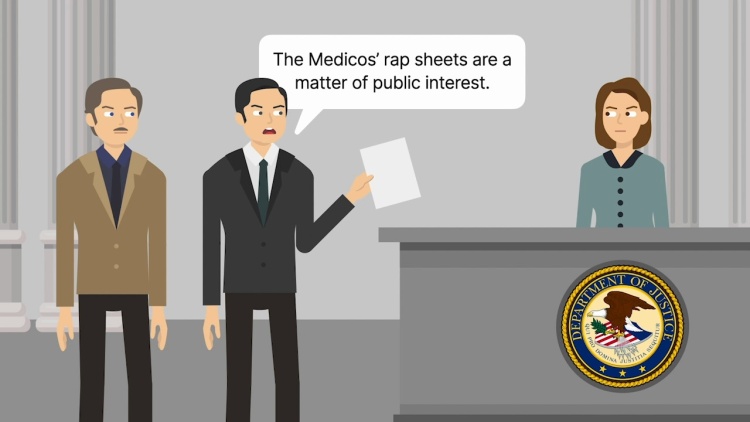Department of Justice v. Reporters Committee for Freedom of the Press
United States Supreme Court
489 U.S. 749 (1989)
- Written by Peggy Chen, JD
Facts
The Federal Bureau of Investigation (FBI) has gathered and maintained information about the criminal records of more than 24 million persons in the United States, pursuant to various Congressional directives. These records, colloquially “rap sheets,” contain descriptive information about a person, such as date of birth, physical characteristics, as well as information about the person’s history of arrests, convictions and incarcerations. This information is a matter of public record, but not available in collected form except from the FBI. A CBS News correspondent and the Reporters Committee for Freedom of the Press (Reporters Committee) (plaintiff) requested under the Freedom of Information Act (FOIA) information about four members of the Medico family. The Pennsylvania Crime Commission had identified the family’s company as having connections to organized crime and the company was alleged to have won several defense contracts as a result of an improper relationship with a corrupt Congressperson. The FBI originally denied the FOIA requests, then provided information on three of the four persons. The Reporters Committee filed suit in the United States District Court for the District of Columbia to obtain the rap sheet on the fourth person, Charles Medico. The district court found for the Department of Justice, and the District of Columbia Circuit reversed. The Department of Justice appealed and the Supreme Court granted certiorari.
Rule of Law
Issue
Holding and Reasoning (Stevens, J.)
Concurrence (Blackmun, J.)
What to do next…
Here's why 899,000 law students have relied on our case briefs:
- Written by law professors and practitioners, not other law students. 47,000 briefs, keyed to 994 casebooks. Top-notch customer support.
- The right amount of information, includes the facts, issues, rule of law, holding and reasoning, and any concurrences and dissents.
- Access in your classes, works on your mobile and tablet. Massive library of related video lessons and high quality multiple-choice questions.
- Easy to use, uniform format for every case brief. Written in plain English, not in legalese. Our briefs summarize and simplify; they don’t just repeat the court’s language.





